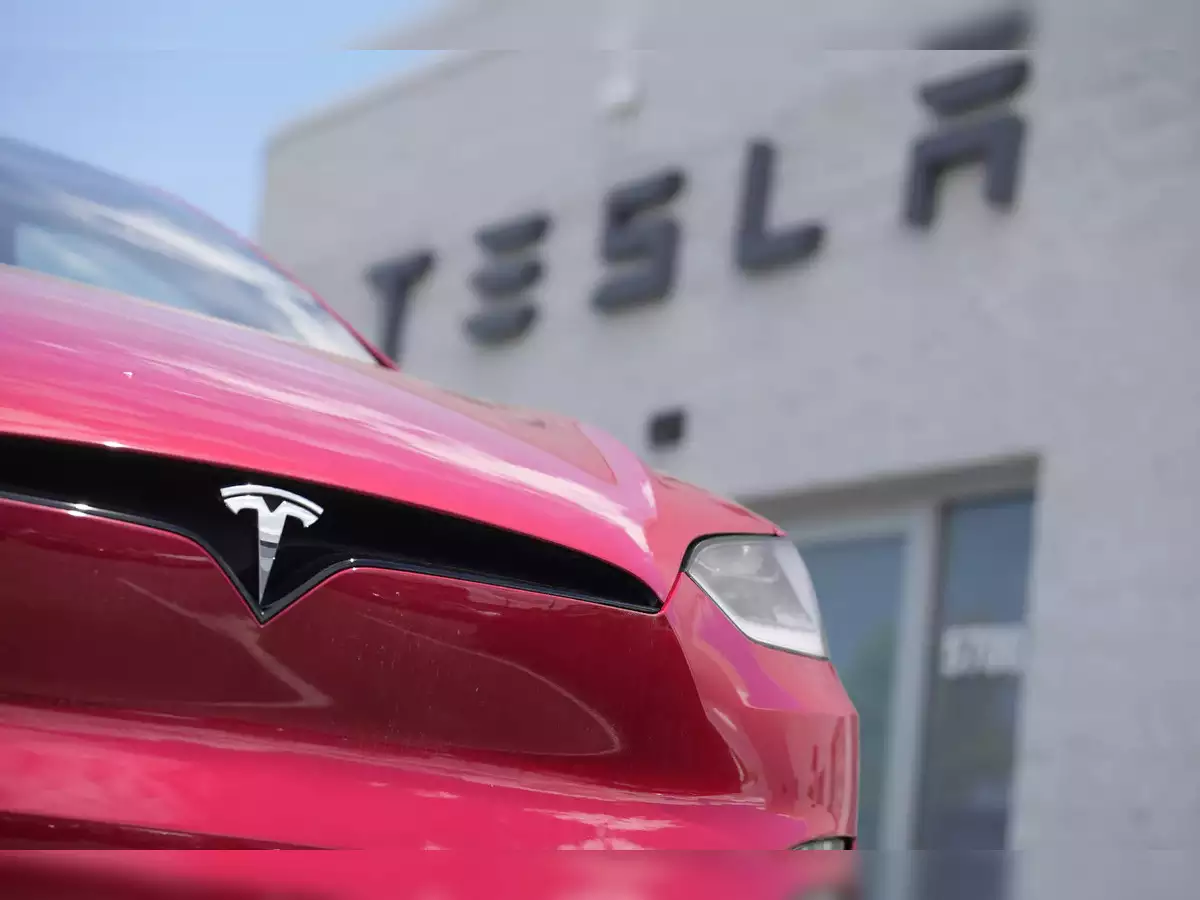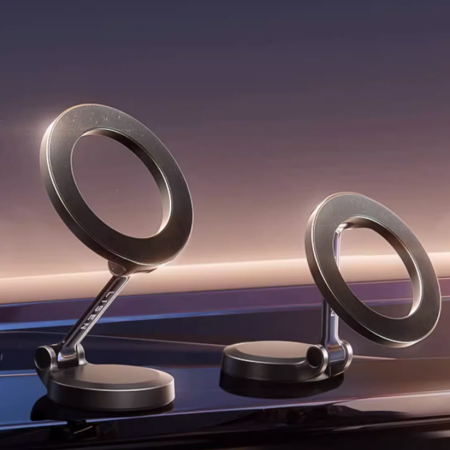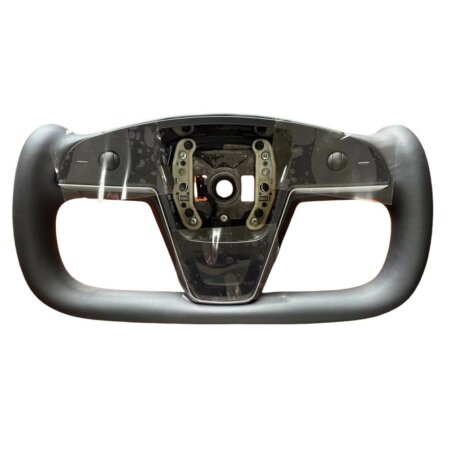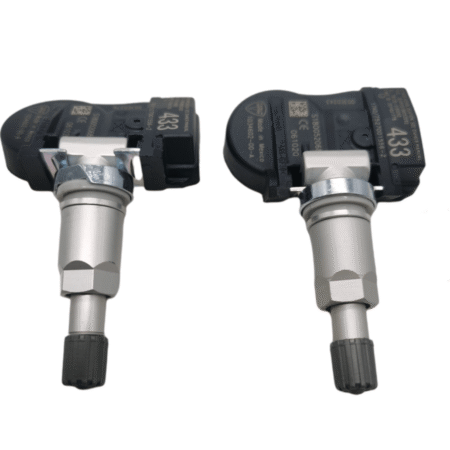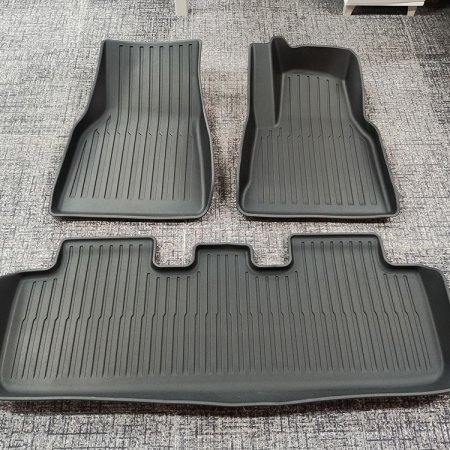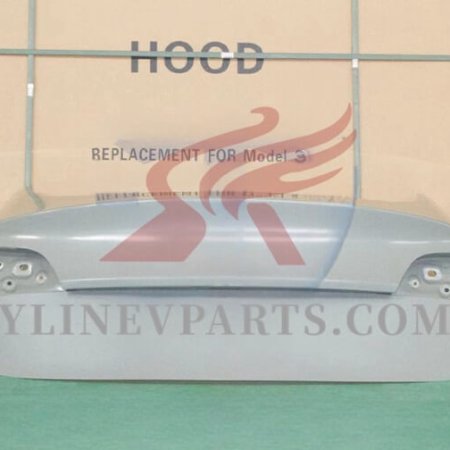Current Landscape and Market Overview
The Tesla parts manufacturing industry is integral to the broader automotive sector, providing essential components for electric vehicles (EVs). As Tesla expands its global presence, the demand for high-quality, reliable parts has surged. The industry features a mix of established automotive suppliers and newer companies specializing in EV components. Major players such as Bosch, Magna International, and LG Chem supply a range of parts, including batteries and electronic control units, while companies like Rimac Automobili offer advanced components for Tesla’s performance models.
Market dynamics are influenced by several factors. Technological advancements are reshaping production processes, with automation and AI driving improvements in efficiency and cost reduction. Growing consumer interest in EVs is fueling demand for Tesla parts, pushing manufacturers to increase production and explore new technologies. Recent global disruptions have exposed vulnerabilities in supply chains, leading industry players to diversify suppliers and invest in local production capabilities.
The distribution of market share among leading manufacturers illustrates the competitive nature of the Tesla parts industry. Tesla’s internal manufacturing capabilities account for approximately 60% of the parts used in its vehicles, with the remainder sourced from various suppliers.
Historical Evolution
The historical evolution of the Tesla parts manufacturing industry reveals significant milestones and changes that have shaped its current state. Initially, Tesla depended heavily on external suppliers for most of its parts, focusing on building a reliable supply chain for its early models like the Tesla Roadster and Model S. As the company grew, it began integrating more manufacturing processes in-house. The establishment of the Gigafactory in 2016 was a pivotal development, enabling Tesla to produce its own batteries and reduce reliance on external sources.
In recent years, advanced manufacturing technologies, including robotics and AI-driven quality control, have been adopted, which have enhanced production efficiency and product quality. Additionally, Tesla has committed to sustainability, implementing practices to reduce the environmental impact of its manufacturing processes through the use of recyclable materials and energy-efficient technologies.
Key Trends Shaping the Industry in 2024
Technological Advancements
In 2024, technological advancements are revolutionizing Tesla parts manufacturing, driving both efficiency and innovation. One of the most significant trends is the integration of automation and artificial intelligence (AI) into manufacturing processes. Automation technologies, including robotics and advanced assembly lines, are streamlining production and reducing labor costs. These systems enable precise, high-speed manufacturing, which is essential for meeting the growing demand for Tesla vehicles.
AI plays a crucial role in predictive maintenance and quality control. By analyzing data from various sensors and production systems, AI algorithms can predict potential equipment failures before they occur, minimizing downtime and improving overall production reliability. Furthermore, AI-driven quality control systems can identify defects more accurately than traditional methods, ensuring that each part meets Tesla’s stringent quality standards.
Sustainability Initiatives
Sustainability is a core focus for Tesla parts manufacturers, reflecting the broader industry trend towards environmental responsibility. Tesla is leading the charge in adopting sustainable practices, including the use of recycled materials and energy-efficient manufacturing processes. The company’s commitment to reducing its carbon footprint is evident in its efforts to source renewable energy for its manufacturing facilities and implement waste reduction programs.
One notable initiative is the use of recycled aluminum in Tesla vehicles. By integrating recycled materials, Tesla not only reduces the environmental impact of its production but also supports a circular economy. Additionally, Tesla’s Gigafactories are designed to operate with minimal environmental impact, utilizing renewable energy sources and implementing efficient waste management practices.
Supply Chain Developments
The Tesla parts industry is currently navigating significant supply chain challenges and developments. Recent global disruptions have highlighted vulnerabilities in the supply chain, prompting manufacturers to reevaluate their logistics and sourcing strategies. Companies are increasingly focusing on diversifying their supply chains to reduce dependency on any single source and to mitigate risks associated with geopolitical and economic uncertainties.
Emerging trends in supply chain management include increased local sourcing and the adoption of advanced logistics technologies. By sourcing materials closer to manufacturing sites, Tesla can reduce lead times and transportation costs. Additionally, innovations in logistics, such as real-time tracking systems and automated warehouses, are improving the efficiency and transparency of the supply chain.
By staying informed about these key trends—technological advancements, sustainability initiatives, and supply chain developments—stakeholders can better navigate the evolving landscape of Tesla parts manufacturing. These trends not only shape the current state of the industry but also set the stage for future growth and innovation.
Market Dynamics and Consumer Preferences
Demand Fluctuations
In the Tesla parts manufacturing sector, demand is a fluid and dynamic phenomenon, shaped by an interplay of market forces and evolving consumer preferences. As the electric vehicle (EV) market expands at an unprecedented rate, the demand for Tesla parts has experienced a notable surge. This increase mirrors the broader growth of the EV industry and is influenced by several key factors.
One major driver of this demand is the global shift towards electric vehicles. As more consumers opt for environmentally friendly transportation options, the need for high-quality components, such as advanced batteries and electronic control units, has risen. The surge in EV adoption is not just a trend; it reflects a significant change in consumer attitudes towards sustainability and innovation.
Tesla’s strategy of continuous innovation also plays a critical role in shaping demand fluctuations. The company frequently updates its vehicle lineup with new models and enhancements. For instance, the introduction of the Tesla Model Y and the anticipation surrounding the Cybertruck generate waves of interest and demand for corresponding parts. Consumers are eager for the latest features, which drives the need for parts that support new technologies and design advancements.
The broader trend of consumer preference towards the latest and most advanced technology significantly impacts parts demand. As Tesla introduces new models with cutting-edge features, the corresponding parts experience fluctuations in demand, driven by consumers’ desire to stay up-to-date with the latest innovations.
Pricing Trends
In the Tesla parts market, pricing strategies are influenced by a complex mix of factors, including raw material costs, technological advancements, and competitive pressures. The cost of materials like lithium for batteries and rare earth elements for electric motors can substantially affect pricing trends. For instance, fluctuations in the prices of these critical raw materials directly impact the cost structure of components, potentially altering part prices.
Technological advancements also play a crucial role in pricing. Automation and AI are driving efficiencies in manufacturing, which can lead to cost reductions. As these technologies become more integrated into production processes, they help lower manufacturing costs. This, in turn, may be reflected in the pricing of parts, making them more accessible to consumers while maintaining profitability for manufacturers.
Tesla’s approach to pricing is a balancing act between maintaining profitability and meeting consumer expectations. As the company scales up production and achieves greater economies of scale, there is potential for cost reductions and more competitive pricing. However, this balance is delicate. Global supply chain disruptions and volatile raw material costs can introduce pricing volatility, impacting both consumers and manufacturers.
How Consumer Preferences Shape the Market
Consumer preferences are pivotal in shaping the Tesla parts market. As interest in electric vehicles grows, consumers increasingly seek parts that enhance vehicle performance, safety, and sustainability. Tesla’s commitment to innovation and user experience drives the development of new parts and features that align with evolving consumer expectations.
Customization is another significant factor. Tesla owners often desire parts that allow them to personalize their vehicles, whether through performance upgrades, aesthetic modifications, or advanced technological features. This demand for customization drives manufacturers to offer a diverse range of parts and accessories that cater to individual tastes and needs.
Furthermore, the shift towards sustainability is increasingly influencing consumer choices. There is a growing preference for parts made from recycled materials and produced using environmentally friendly practices. Consumers are more likely to support brands that prioritize environmental responsibility, prompting manufacturers to adapt and align their offerings with these values.
The interplay of these factors—technological advancements, raw material costs, consumer preferences, and sustainability—creates a dynamic and evolving market for Tesla parts. Understanding these influences helps manufacturers navigate the complexities of demand fluctuations and pricing strategies, ultimately shaping the future of the Tesla parts industry.
Regulatory and Compliance Issues
Industry Regulations
The Tesla parts manufacturing industry is governed by a complex set of regulations designed to ensure safety, quality, and environmental sustainability. Compliance with these regulations is crucial for manufacturers to avoid legal issues and maintain product integrity.
Safety and Quality Standards: Automotive parts must adhere to stringent safety and quality standards established by regulatory bodies such as the National Highway Traffic Safety Administration (NHTSA) in the United States and the European Union’s ECE regulations. These standards cover various aspects, including material durability, performance, and crashworthiness. Manufacturers must conduct rigorous testing and certification processes to ensure that their parts meet these requirements.
Environmental Regulations: Environmental regulations are increasingly important as the automotive industry moves towards more sustainable practices. Manufacturers must comply with regulations related to emissions, waste management, and resource efficiency. For instance, the European Union’s End-of-Life Vehicles (ELV) Directive mandates the recycling of automotive components and the reduction of hazardous substances in vehicle manufacturing.
Data Protection and Cybersecurity: With the increasing integration of digital technologies in automotive parts, data protection and cybersecurity regulations have become more relevant. Manufacturers must ensure that their systems are secure and comply with regulations such as the General Data Protection Regulation (GDPR) in the EU and similar data protection laws worldwide.
Quality Control Measures
Ensuring high quality in Tesla parts manufacturing involves implementing comprehensive quality control processes. These measures are essential for maintaining the reliability, safety, and performance of automotive components.
Quality Assurance Processes: Manufacturers use a variety of quality assurance processes to monitor and improve the quality of their parts. This includes establishing quality standards, conducting regular inspections, and performing detailed testing throughout the production cycle. Techniques such as Statistical Process Control (SPC) and Six Sigma are commonly employed to identify and address quality issues proactively.
Testing and Certification: Rigorous testing is crucial to ensure that parts meet performance and safety standards. This includes both functional testing to verify that parts perform as intended and durability testing to assess their longevity under various conditions. Certification by third-party organizations, such as TÜV SÜD or UL, provides additional assurance that parts meet industry standards.
Continuous Improvement: The principles of continuous improvement are applied to enhance quality control processes continually. This involves analyzing feedback, investigating defects, and implementing corrective actions to prevent recurrence. Manufacturers often use tools like Root Cause Analysis (RCA) and Failure Mode and Effects Analysis (FMEA) to identify and address potential issues.
Future Outlook and Predictions
Growth Projections
The future of the Tesla parts manufacturing industry looks incredibly promising, underpinned by the expanding electric vehicle (EV) market and continual innovations in automotive technology. Industry analysts are optimistic about significant growth, with projections indicating that the global EV market will continue its upward trajectory. According to BloombergNEF, it’s anticipated that EVs will constitute over 30% of all new car sales by 2030. This surge in EV adoption will directly elevate the demand for high-quality Tesla parts, as the need for advanced components like batteries and electronic control units grows.
Tesla’s strategic moves, including the expansion of its Gigafactories and the rollout of new vehicle models, are expected to further accelerate growth in the parts manufacturing sector. The company’s focus on vertical integration—where key components are produced in-house—along with efforts to enhance production capabilities, will drive increased demand for both Tesla-produced and supplier-provided parts. This expansion not only supports Tesla’s internal needs but also bolsters the broader supply chain.
Challenges and Opportunities
Challenges: Supply Chain Disruptions: The global supply chain continues to face significant hurdles, such as raw material shortages and geopolitical uncertainties. For instance, the recent semiconductor shortage has had a profound impact on the automotive industry, leading to delays and increased costs for essential electronic components.
Regulatory Compliance: Navigating the evolving landscape of regulations—covering environmental standards, safety protocols, and data protection—poses a complex challenge. Manufacturers must stay vigilant about regulatory changes and adapt their practices accordingly to ensure compliance and avoid potential penalties.
Technological Integration: While advancements in automation and AI offer substantial benefits, incorporating these technologies into existing manufacturing processes can be daunting. Companies need to invest in both infrastructure and workforce training to fully leverage these innovations and maintain operational efficiency.
Opportunities:
Technological Innovation: The relentless progression of technologies like autonomous driving systems, advanced battery technologies, and renewable energy solutions presents ample opportunities for manufacturers. Investing in research and development can lead to the creation of groundbreaking components and solutions that cater to the evolving demands of the automotive market.
Sustainability: With increasing emphasis on environmental stewardship, there are ample opportunities for manufacturers to adopt eco-friendly practices and develop sustainable products. Embracing principles of the circular economy—such as recycling and waste reduction—can enhance a company’s reputation and appeal to environmentally conscious consumers.
Global Expansion: The rise in global EV adoption opens new markets for expansion. Manufacturers can explore emerging markets, establish strategic partnerships, and tap into new opportunities to meet the growing demand for Tesla parts on a global scale.
Where to Look for Tesla Part Manufacturers?
Kylin EV Parts Ltd is situated in Guangzhou, the hub of China’s automotive parts industry. Established in 2013, the company owns three factories specializing in car cover and dog mats, automotive sunshades, and car floor mats. We excel in customized production for renowned automobile brands such as Tesla, VW, BYD, and others.
In 2022, our international trade department was established, focusing on the integration of Tesla wholesale parts, as well as aftermarket modifications. As China’s premier B2B supplier, we offer a comprehensive service in integrating Tesla spare parts for numerous foreign sellers, both online and offline.
We extend a cordial invitation to collaborate with foreign dealers and explore OEM and ODM partnerships for our products. With our commitment to the most professional service, the highest quality products, and the most reasonable prices, we endeavor to provide unparalleled support.
Ensuring compatibility when purchasing Tesla parts online is crucial for maintaining your vehicle’s performance, safety, and longevity.

